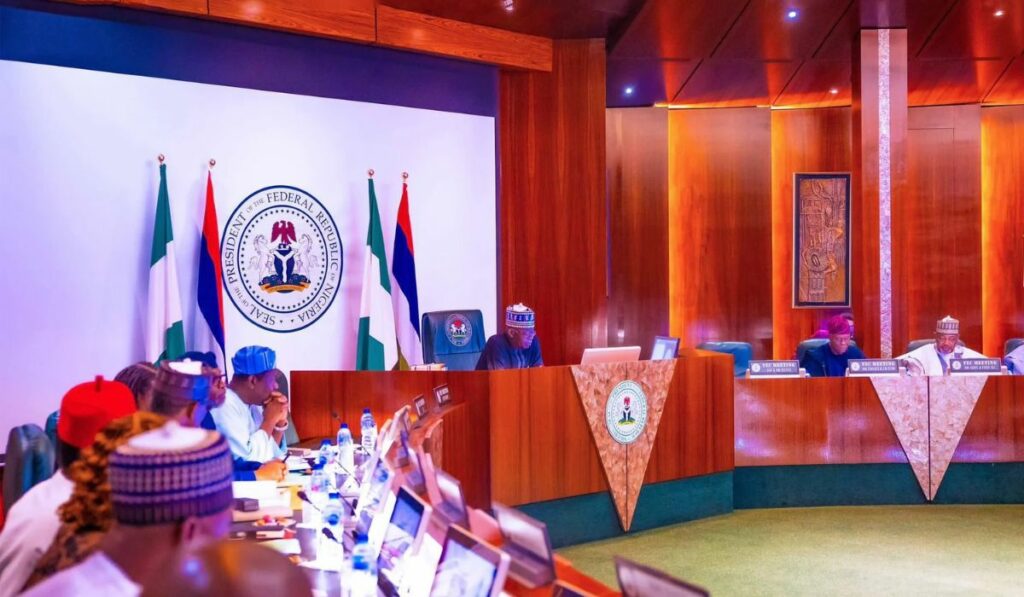Editorial
Addressing Mental Health Challenges
October 10, every year is set aside by the United Nations to celebrate World Mental Health Day. It is a day intended to promote discussions on mental disorders and investment in prevention, promotion and treatment of mental health.
Unfortunately, little or no attention is often given to this aspect of human health need in many countries even when it is common knowledge that mental disorder thrives in an atmosphere of stress, anxiety and all manner of frustration often associated with the kind of human challenges common in Africa.
In Nigeria, the failure to celebrate the World Mental Health Day by the three tiers of government, the way it should, has only underscored the general attitude to the problem. The poor attention given to mental health in the country is even more dangerous when viewed from the fact that more people may be endangered through the abuse of hard drugs that even minors now participate in.
It is therefore important that adequate sensitization is undertaken on the symptoms, causes and treatment of mental disorders. Given the fact that early detection and prompt attention are key to checking and curing this kind of ailment, there ought to be more openness on the subject.
Of course, mentally unstable citizens cannot be depended upon to act or behave in socially acceptable manner. This is perhaps why drivers who contravene traffic rules in our society are recently being subjected to psychiatric tests.
While we agree that primary health care is an important foundation in the promotion of the well-being of the citizenry, we believe that adequate attention should be given to mental health of Nigerians as conditions that trigger the situation are becoming rather too rampant.
We therefore urge government at all levels to pay improved attention and provide special training for the providers of mental healthcare. This is more so because specialist psychiatric doctors and mental health institutions are still inadequate in the country.
There is also the need for sensitisation to educate Nigerians to appreciate the fact that mental cases are not necessarily a product of superstition. It is purely a human condition like any other defect in the human body system.
We are not against any therapy including religious and traditional methods of the treatment of mental disorder, however, we believe that these should be complementary to modern medicine. We urge the federal, state and local governments to pay special attention to rehabilitation centres, especially, for the mentally challenged and other destitutes.
It is also appropriate at this time in our nation’s life, for government to improve social amenities such as power, potable water, healthcare delivery and employment/skills empowerment; the absence of which often lead to stress and other mental complications.
In the same vein, government should introduce social security programmes including unemployment benefits which can help to sustain and improve the quality of life of the average citizen as practiced in the developed nations. That way, the incidences of stress, emotional instability and mental disorders are reduced.
The celebration of the World Mental Health Day, this year should engender a renewed approach by the inclusion of preventive and proactive policies and programmes to sustain and improve the mental health of the citizenry.
Even so, the private sector should also partner with government to provide funding, training and technology relevant for the management of the mental health challenges in the country.
Editorial
Rivers’ Retirees: Matters Arising

Editorial
That FEC’s Decision On Tertiary Institutions

Editorial
Addressing Unruly Behaviours At The Airports

It began as a seemingly minor in- flight disagreement. Comfort Emmason, a passenger on an Ibom Air flight from Uyo to Lagos, reportedly failed to switch off her mobile phone when instructed by the cabin crew. What should have been a routine enforcement of safety regulations spiralled into a physical confrontation, sparking a national debate on the limits of airline authority and the rights of passengers.
The Nigerian Bar Association (NBA) wasted no time in condemning the treatment meted out to Emmason. In a strongly worded statement, the body described the incident as “a flagrant violation of her fundamental human rights” and called for a thorough investigation into the conduct of the airline staff. The NBA stressed that while passengers must adhere to safety rules, such compliance should never be extracted through intimidation, violence, or humiliation.
Following the altercation, Emmason found herself arraigned before a Magistrate’s Court and remanded at Kirikiri Maximum Security Prison, a location more commonly associated with hardened criminals than with errant passengers. In a surprising turn of events, the Federal Government later dropped all charges against her, citing “overriding public interest” and concerns about due process.
Compounding her woes, Ibom Air initially imposed a lifetime ban preventing her from boarding its aircraft. That ban has now been lifted, following mounting public pressure and calls from rights groups for a more measured approach. The reversal has been welcomed by many as a step towards restoring fairness and proportionality in handling such disputes.
While her refusal to comply with crew instructions was undeniably inappropriate, questions linger about whether the punishment fit the offence. Was the swift escalation from verbal reminder to physical ejection a proportionate response, or an abuse of authority? The incident has reignited debate over how airlines balance safety enforcement with respect for passenger rights.
The Tide unequivocally condemns the brutal and degrading treatment the young Nigerian woman received from the airline’s staff. No regulation, however vital, justifies the use of physical force or the public shaming of a passenger. Such behaviour is antithetical to the principles of customer service, human dignity, and the rule of law.
Emmason’s own defiance warrants reproach. Cabin crew instructions, especially during boarding or take-off preparations, are not mere suggestions; they are safety mandates. Reports suggest she may have been unable to comply because of a malfunctioning power button on her device, but even so, she could have communicated this clearly to the crew. Rules exist to safeguard everyone on board, and passengers must treat them with due seriousness.
Nigerians, whether flying domestically or abroad, would do well to internalise the importance of orderliness in public spaces. Adherence to instructions, patience in queues, and courteous engagement with officials are hallmarks of civilised society. Disregard for these norms not only undermines safety but also projects a damaging image of the nation to the wider world.
The Emmason affair is not an isolated case. Former Edo State Governor and current Senator, Adams Oshiomhole, once found himself grounded after arriving late for an Air Peace flight. Witnesses alleged that he assaulted airline staff and ordered the closure of the terminal’s main entrance. This is hardly the conduct expected of a statesman.
More recently, a Nollywood-worthy episode unfolded at Abuja’s Nnamdi Azikiwe International Airport, involving Fuji icon “King”, Wasiu Ayinde Marshal, popularly known as KWAM1. In a viral video, he was seen exchanging heated words with officials after being prevented from boarding an aircraft.
Events took a dangerous turn when the aircraft, moving at near take-off speed, nearly clipped the 68-year-old musician’s head with its wing. Such an occurrence points to a serious breach of airport safety protocols, raising uncomfortable questions about operational discipline at Nigeria’s gateways.
According to accounts circulating online, Wasiu had attempted to board an aircraft while he was carrying an alcoholic drink and refused to relinquish it when challenged. His refusal led to de-boarding, after which the Aviation Minister, Festus Keyamo, imposed a six-month “no-fly” ban, citing “unacceptable” conduct.
It is deeply concerning that individuals of such prominence, including Emmason’s pilot adversary, whose careers have exposed them to some of the most disciplined aviation environments in the world, should exhibit conduct that diminishes the nation’s reputation. True leadership, whether in politics, culture, or professional life, calls for restraint and decorum, all the more when exercised under public scrutiny.
Most egregiously, in Emmason’s case, reports that she was forcibly stripped in public and filmed for online circulation are deeply disturbing. This was an act of humiliation and a gross invasion of privacy, violating her right to dignity and falling short of the standards expected in modern aviation. No person, regardless of the circumstances, should be subjected to such degrading treatment.
Ibom Air must ensure its staff are trained to treat passengers with proper decorum at all times. If Emmason had broken the law, security personnel could have been called in to handle the matter lawfully. Instead, her ordeal turned into a public spectacle. Those responsible for assaulting her should face prosecution, and the airline should be compelled to compensate her. Emmason, for her part, should pursue legal redress to reinforce the principle that justice and civility must prevail in Nigeria’s skies.
-
Sports8 hours ago
FIFA rankings: S’Eagles drop Position, remain sixth in Africa
-
Sports8 hours ago
CAFCL : Rivers United Arrives DR Congo
-
Sports8 hours ago
NNL abolishes playoffs for NPFL promotion
-
Sports8 hours ago
NPFL club name Iorfa new GM
-
Sports8 hours ago
Kwara Hopeful To Host Confed Cup in Ilorin
-
Sports8 hours ago
NSF: Early preparations begin for 2026 National Sports Festival
-
Sports8 hours ago
RSG Award Renovation Work At Yakubu Gowon Stadium
-
Sports8 hours ago
NNL: Amuneke Sure To Compete Strongly

